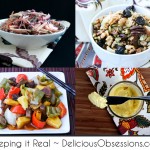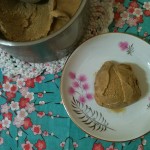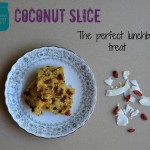Welcome to the post in which I tell you what I do and don’t eat….
…and then tell you that it probably won’t work for you.
Yep. I am going to outline specifically what I eat (sticking to a few major food groups for now). And yes, I will tell you outright that following exactly what I eat is not going to work for you. But don’t worry, I’m not going to leave you feeling helpless and alone in the big scary food world. There is a huge, important, crucial underlying message that I hope I can bring home strong.
I get asked what I eat or what I don’t eat very often. And why. And how much. And this, and that, and all of the other things.
Sarah, are you paleo? No.
Are you on GAPS? No.
Are you on SCD or BED? No.
Do you food combine? Uhm… you bet I combine my foods! If they taste good together, put them together!!!!!!! Oh, you mean an actual rigid program of what foods don’t go together? No.
Are you vegetarian? Really?!? No. (Seriously, so many people have assumed this lately… mostly because I look like a hippy vegetarian.)
Are you grain free? Uhm… not really?
Do you eat real food? Yes!!!!!! …..ish. Wholegrains is where we get murky.
So what do you eat then, Sarah? I eat what works for me.
I believe, above all other diets and protocols, in the power of real food. That is, food as it comes and as it should be. Unprocessed, unrefined (kind of, more on that later), untainted by chemicals. Food that adds to body and soul rather than taking away.
My journey into real food began a mere 2 years ago, after I bought my Thermomix. It started with three amazing books: Cyndi O’Meara’s Changing Habits, Changing Lives, followed by Sally Fallon’s Nourishing Traditions and Weston Price’s Nutrition and Physical Degeneration. At first it was a really slow progression – just cutting out additives and refined foods, bit by bit. But the real food world is like this weird abyss that you don’t realise you’re getting sucked into until the forces pulling you in are overwhelming. You inch closer, bit by bit, until…. wait, how did that happen? Not that I regret the changes I have made in any way. It’s just bizarre how gradually and then suddenly it happened.
But the effect on my entire lifestyle and the very essence of my being since discovering real food has been incredible. I would, more often than not, wake up with a headache and go to bed with one. I have battled with official and unofficical mood disorders my entire life (by which I mean bad enough at some points to be diagnosed as a mood disorder, but at other times just general low mood and melancholy). I have also struggled with unexplained nausea, weird sleep patterns and low energy. I now hardly get headaches, I am so much happier, I feel well, and I have more energy. And I owe almost every bit of that to real food.
But one thing that real food doesn’t often teach you, is to pay attention to your body. Real food often prescribes (properly prepared) wholegrains for all, for example, but this is something that my body really struggles with.
And no, I am not doing it wrong. I could soak and sprout the heck out of wholegrains and it would still feel like they were ripping my body to shreds from the inside out.
The sad thing is, often our bodies are screaming at us. We just can’t understand. My body has spent my whole life screaming at me for the shitty not so perfect choices I made, and I spent my whole life ignoring my body. I don’t believe for a second that this is entirely my fault though. I think a huge part of my inability to compute the messages my body was trying so desperately to send was because I was messing with the system so thoroughly that the system was in total failure. If we are constantly putting food into our bodies that our body can’t understand or use, and that actually gets in the way of normal bodily processes and good health, our bodies are in constant freak out mode. And if all you have ever known is constant freak out mode, won’t that just feel normal anyway? It’s only if you take things completely back to basics that you can heal your body enough so that it can communicate in a way that you can understand. You’ve got to recalibrate your body, and recalibrate the definition of normal in your body. You’ve got to stop experiencing constant freak out mode so that you can experience normal. And then, once you have experience normal, you will know what is working and isn’t working for your body.
I believe that real food is a fantastic, excellent, almost perfect place to start. But I believe that above all else we should listen to our bodies.
So. The bit you have all been waiting for. The most thrilling thing you will ever read in your entire life. What does Sarah eat?Let’s break it down.
Meat:
Yes. A million times yes. I eat meat, I love meat. I eat grass-fed/free range beef and lamb, free range pork, and organic free range chicken. I only ever buy certified organic chicken (even just free range doesn’t fly in my house I apologise for that terrible pun); the rest I buy certified organic where possible. I don’t think I need to go into detail here on the benefits of eating free range and grass fed meat vs. conventionally raised meat. But, to summarise, grass fed and free range meat is: happier, tastier, and healthier. I firmly believe that we cast our votes with our money. If you don’t think the conventional meat farming standards are ideal, don’t support them. It’s better for the animal, and better for you. And better for the rest of us who want that too. 😉
Two thumbs up for organic/grass fed/free range meat; two thumbs all the way down for conventionally raised meat.
Four thumbs up for using the odd bits, especially gelatin and bone marrow!
Dairy:
Yes. Once again, a million times yes. Unless you have a dairy intolerance/allergy, dairy is an amazing wholefood. We don’t go to town on the dairy, we actually consume less of it than we used to prior to my real food epiphany. But we consume it wisely. I only purchase raw milk. Yes, that scary unpasteurised liquid death. We make dairy kefir daily, and we often make raw yoghurt and cream cheese, and use the whey from cream-cheese-making for kickstarting our other ferments. Fermented dairy products from raw milk receive two thumbs up; drinking raw milk straight from the glass gets one thumb up (not because it’s bad, but merely because fermented is better due to the probiotics).
Cheese is a bit of a murky area. I buy cheese made with raw milk wherever possible, and I tend to reach for that first in most applications. However, I do also buy (and enjoy) cheeses made from pasteurised organic milk. My view is that, if I’m going to have a little splurge, that’s not such a bad one to have. But also, I think that the benefits of fermenting/culturing the cheese outweigh the negatives of pasteurisation (not completely, but mostly). I give raw cheese two thumbs up; pasteurised cheese just one.
Grains:
I have a feeling this one might be hard for some of you to swallow. First of all, after probably almost a year of being grain free, we have made our way back into the grain eating world. Only very moderately, but still… here we are. I’m going to write a big post devoted to grains soon, because given the popularity of grain free diets, I feel like it is a big issue to unpack. Second, we don’t eat any wholegrains. When we eat grains, we eat 100% refined grains. I’m not saying we buy our bread from the supermarket (hello, 17 additives, please get out of my trolley). Not that kind of refined. Refined as in white. White rice, white flour. Yes. Flour, The Devil. We are eating gluten. Unbleached white spelt devil flour, to be precise. Again, only very moderately. And only in the form of sourdough, with a very long rise to increase fermentation and aid digestion. Why the grains, why the gluten, why the refined ones? Because that is what works for us. I noticed that my energy and mood suffered when we were off grains. Yet when I had wholegrains, of any kind, the insides of my gut felt like they were being clawed at and tied in very tight knots. And you did not want to be around me after eating wholegrains. It has been harder to spot symptoms with T, because he can’t always explain what’s going on for his body. But I sure can smell the symptoms! There did seem to be a fatigue/mood link there for him without grains too, as well as some skin and digestive symptoms with whole grains. We both do much better on grains but off wholegrains. We’re still very much in the transitional phases, still working out what works for us (you don’t want to rush these things). More on this process, and how I worked out what works for me, in a separate post on grains later. But for now, brown rice and quinoa get two big fat thumbs down. White rice and white spelt sourdough get one thumb up (because I still believe they should be occasional foods).
Fat:
There is just one thing I have been able to figure out from the screaming signals my body was trying to give me over the years, and all the terrible dietary choices I made along the path to where I am now…. And that is, a constant craving for fat. My body needs it. It always has, and always will because fat is so important. There’s so much out there now about low fat – if you are still consuming low fat products pleeeeease please please do some reading and move away from these as quickly as possible. This is the one change that should absolutely be rushed through for everyone. We need fats, and we need to choose the right fats. Again, as for dairy, we want unrefined wholefoods here too. No highly processed vegetable oils. No margarine either. Margarine is probably one of the most highly refined ‘foods’ that you can buy. It’s scary stuff. Coconut oil, olive oil and macadamia oil are great choices – but they should be cold pressed. My fat of choice? Of course, it depends on the purpose, but grass fed butter and lard are definitely very high up on the list. Lard is stable at high temperatures, and both offer huge benefits in their nutritional makeup. These are real, nourishing wholefoods at their best. Ghee is a great wholefood substitute for butter for those with a dairy intolerance/allergy. Two thumbs up for real fats; two thumbs way down for refined vegetable oils and margarine.
I think that’s it for the specific ‘what does Sarah eat’ stuff for tonight. More in part 2 at some point.
However, I know there was one question in particular that a lot of you are interested in….
Why not GAPS/paleo/primal/SCD/BED/etc?
Ultimately, because I don’t think a blanket protocol is the right prescription for everyone. We are all so internally different, with such different life experiences that affect our internal processes, and everyone deals with and reacts to foods differently. The idea of everyone-do-this-and-hey-it-worked-for-me-so-it-will-definitely-work-for-you just does not sit right with me at all. From a psychological viewpoint, anything that makes you stress that much about what to eat and what not to eat is going to mess with your body anyway and risk making things worse… Because unlike raw milk, ongoing stress actually is the devil.
I was moving towards GAPS over the last almost-year of being grain free, but I could feel that it was just so not working for me. I didn’t want to go through possibly years of doing a really strict protocol and feeling like hell and being told I wasn’t doing it right (as is such a recurring theme in these strict diets, which only further exacerbates stress). Although I do believe firmly in the healing powers of foods like bone broth and ferments, I couldn’t see how that kind of intense pressure would actually work for me. And ignoring all my fears and projections, the closer I got to the full GAPS diet, the worse I felt physically. I was eating too much meat, drinking too much bone broth, to the point where I was feeling sick all the time (especially at the thought of more meat) and my body was just aching for vegetables and only vegetables and don’t-even-look-at-that-meat-or-I’ll-hurl no more meat. Ever. There is just no way I could have kept going and felt okay about it. But I do readily acknowledge that protocols like GAPS work for some, and can even be amazing and life changing for some. Just not for me.
Now I eat real food the way that it works for me with heavy influence from the GAPS diet (bone broths, ferments, and other gut healing foods). I’m happy, I feel great, and my body doesn’t scream at me anymore. If something goes wrong, it talks to me in quiet whispers: “Hey, Sarah… that wasn’t so great, please don’t do that again.”
And I listen.






Awesome post! Exactly the way I feel!! Funny thing-I read the same books in the same order right around the time I got my TMX – no wonder I always love trying your recipes! Love Kirsty xx
Sounds like me :). I still have my sweet tooth but satisfy it with raw honey, rapadura, fruit, coconut sugar. I now make my own chocolate – thermomix owner of 18 months here :). I also started with Cyndi O’Mearas changing habits changing lives and it opened my eyes
Well that post just blew my mind! I swear your journey is freakishly identical to my own. I’ve been trying for ages to explain to my family and friends how & why I eat like I do. And you have perfectly articulated it. Fantastic post! 🙂